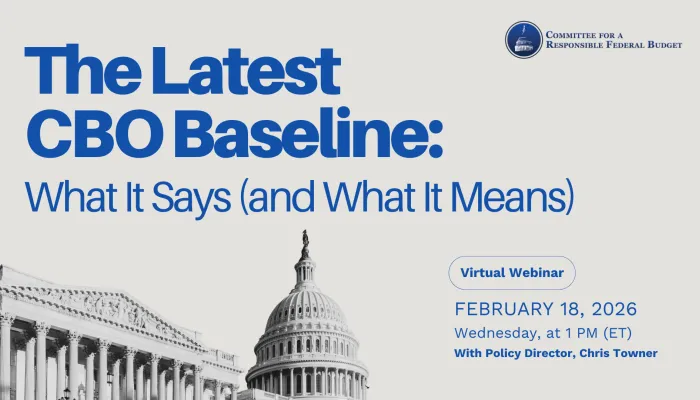Budget Resolution Principles for Fiscal Year 2021
The Congressional budget resolution should establish national priorities in a responsible manner. Congress should follow these principles to craft a budget:
Put forward a real budget
- The most important part of a budget resolution is to have one.
- In the 45-year history of the budget resolution, either the House or Senate Budget Committee has always passed a budget resolution.
Set responsible fiscal goals and develop a plan to achieve them
- Select budget targets that result in a declining debt-to-GDP ratio.
- Set revenue and spending levels to meet those goals.
Include specific plans to address spending and revenue
- Suggest spending reforms to slow the growth of health and other mandatory spending and to increase revenue.
- Include reconciliation instructions for assumed mandatory savings and revenue.
- Limit discretionary spending to reasonable, but realistic, levels.
Enforce the PAYGO requirement that legislation does not add to the deficit
- Require full offsets for any revenue reductions or mandatory spending increases.
- Maintain and strengthen PAYGO and other rules restraining legislation that would increase the deficit over the medium or long term.
Rely on credible and realistic assumptions
- Use economic assumptions based on Congressional Budget Office estimates.
- Evaluate legislation from a current law baseline.
Improve the budget process and budget enforcement
- Enforce spending and revenue levels in the budget resolution.
- Limit abuse of the Overseas Contingency Operations designation and of Changes in Mandatory Programs.
- Incorporate interest effects in CBO and Joint Committee on Taxation cost estimates.
- Advance budget process reforms.
Anticipate negotiating with the other chamber
- Recognize divided government as an opportunity for bipartisan consensus.
- Prioritize governance and our shared fiscal future over partisan messaging.
What's Next
-
Image

-
Image

-
Image
